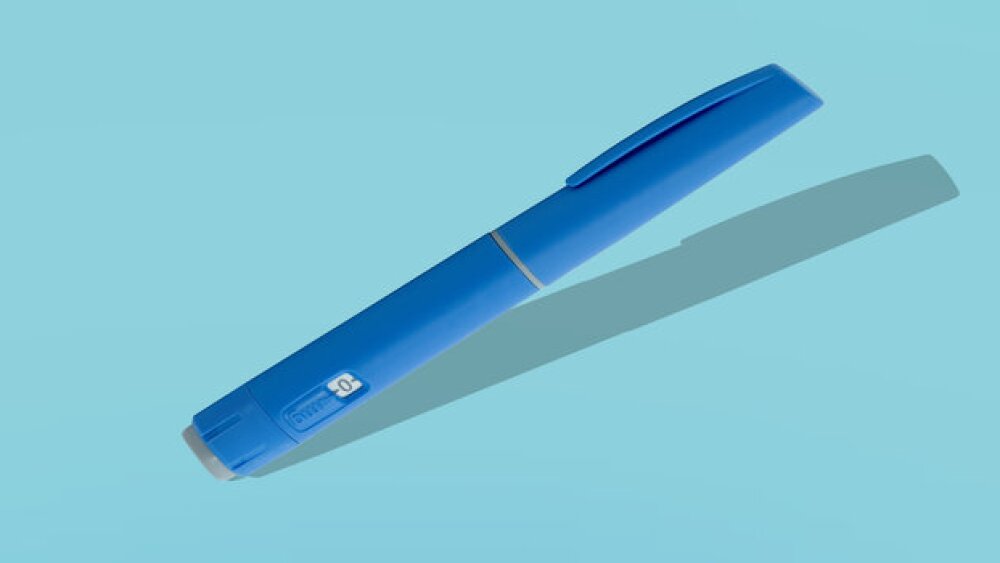- In a Phase 3 clinical trial, Study 3111-301-001, cariprazine (VRAYLAR®) met its primary endpoint demonstrating statistically significant change from baseline to week six in the Montgomery-Åsberg Depression Rating Scale (MADRS) total score in patients with major depressive disorder
- In a Phase 3 clinical trial, Study 3111-301-001, cariprazine (VRAYLAR®) met its primary endpoint demonstrating statistically significant change from baseline to week six in the Montgomery-Åsberg Depression Rating Scale (MADRS) total score in patients with major depressive disorder
|
| [29-October-2021] |
| NORTH CHICAGO, Ill., Oct. 29, 2021 /PRNewswire/ -- AbbVie(NYSE: ABBV) today announced top-line results from two Phase 3 clinical trials, Study 3111-301-001 and Study 3111-302-001, evaluating the efficacy and safety of cariprazine (VRAYLAR®) as an adjunctive treatment for patients with major depressive disorder (MDD). In Study 3111-301-001, cariprazine showed a statistically significant change from baseline to week six in the Montgomery-Åsberg Depression Rating Scale (MADRS) total score compared with placebo. Patients treated with cariprazine at 1.5 mg/day achieved improved MADRS total score at week six compared to placebo (p-value=0.0050). Patients treated with cariprazine at 3.0 mg/day demonstrated improvement in MADRS total score at week six over placebo but did not meet statistical significance (p-value=0.0727). In Study 3111-302-001, cariprazine demonstrated numerical improvement in depressive symptoms from baseline to week six in MADRS total score compared with placebo but did not meet its primary endpoint for either the 1.5 mg/day or 3.0 mg/day dose. In a previously published Phase 2/3 registration-enabling study, RGH-MD-75, patients treated with cariprazine flexible doses of 2.0–4.5 mg/day in addition to ongoing antidepressant therapy (ADT) met the primary endpoint and achieved improved MADRS total scores at week eight compared to placebo (p-value=0.0114). Based on the positive results of studies 3111-301-001 and RGH-MD-75, and the totality of data reported, AbbVie intends to submit a supplemental New Drug Application (sNDA) with the U.S. Food and Drug Administration for the expanded use of cariprazine for the adjunctive treatment of MDD. “When added to ongoing antidepressant treatment that has produced inadequate response in patients with major depressive disorder, cariprazine has now demonstrated that it can further improve depressive symptoms by providing statistically significant and clinically meaningful improvements compared to placebo in two large, well-controlled registrational clinical trials,” said Michael Severino, M.D., vice chairman and president, AbbVie. “Major depressive disorder is one of the most common and serious mental illnesses, and more than half of these patients never experience satisfactory results from this debilitating condition. Based on the results, we believe cariprazine has the potential to benefit these patients as an adjunctive treatment.” The safety results of cariprazine in all three studies were consistent with its established safety profile across indications with no new safety signals identified. The most common adverse events occurring at >5% in the cariprazine groups during the six-week study period were akathisia, nausea, insomnia, headache and somnolence. Full results from studies 3111-301-001 and 3111-302-001 will be presented at a future medical meeting. MDD is a common condition with 19 million people of all ages affected in the United States.1 The World Health Organization lists depression as the third-leading cause of disability worldwide and as a major contributor to the overall global burden of disease. Symptoms can include depressed mood, loss of pleasure or interest in activities, changes in appetite or weight, changes in sleep, psychomotor agitation, loss of energy, feelings of worthlessness, indecisiveness, and current thoughts of death.2 In the United States, the mean age of onset for the first episode is 26 years old,3 and MDD represents an estimated $211 billion economic burden.4 Cariprazine is marketed as VRAYLAR in the United States and is FDA-approved to treat depressive, acute manic and mixed episodes associated with bipolar I disorder, as well as schizophrenia in adults. Cariprazine is being co-developed by AbbVie and Gedeon Richter Plc. More than 8,000 patients worldwide have been treated with cariprazine across more than 20 clinical trials evaluating the efficacy and safety of cariprazine for a broad range of psychiatric disorders. About Studies 3111-301-001 and 3111-302-001 About Study RGH-MD-75 More information about studies 3111-301-001, 3111-302-001 and RGH-MD-75 is available at www.clinicaltrials.gov. About VRAYLAR® (cariprazine) While the mechanism of action of VRAYLAR is unknown, the efficacy of VRAYLAR could be mediated through a combination of partial agonist activity at central dopamine D₂ and serotonin 5-HT1A receptors and antagonist activity at serotonin 5-HT2A receptors. Pharmacodynamic studies with cariprazine have shown that it acts as a partial agonist with high binding affinity at dopamine D3, dopamine D2, and serotonin 5-HT1A receptors. Cariprazine demonstrated up to ~8-fold greater in vitro affinity for dopamine D3 vs D2 receptors. Cariprazine also acts as an antagonist at serotonin 5-HT2B and 5-HT2A receptors with high and moderate binding affinity, respectively as well as it binds to the histamine H1 receptors. VRAYLAR shows lower binding affinity to the serotonin 5-HT2C and α1A- adrenergic receptors and has no appreciable affinity for cholinergic muscarinic receptors. The clinical significance of these in vitro data is unknown. VRAYLAR is being developed jointly by AbbVie and Gedeon Richter Plc, with AbbVie responsible for commercialization in the U.S., Canada, Japan, Taiwan and certain Latin American countries (including Argentina, Bolivia, Brazil, Chile, Colombia, Ecuador, Mexico, Peru and Venezuela). Visit www.vraylar.com for more information. Important Safety Information about VRAYLAR (cariprazine)
Contraindication: VRAYLAR is contraindicated in patients with known hypersensitivity. Reactions have included rash, pruritus, urticaria, and events suggestive of angioedema. Cerebrovascular Adverse Reactions, Including Stroke: In clinical trials with antipsychotic drugs, elderly subjects with dementia had a higher incidence of cerebrovascular adverse reactions, including fatalities vs placebo. VRAYLAR is not approved for the treatment of patients with dementia-related psychosis. Neuroleptic Malignant Syndrome (NMS): NMS, a potentially fatal symptom complex, has been reported with antipsychotic drugs. NMS may cause hyperpyrexia, muscle rigidity, delirium, and autonomic instability. Additional signs may include elevated creatine phosphokinase, myoglobinuria (rhabdomyolysis), and acute renal failure. Manage with immediate discontinuation, intensive symptomatic treatment, and monitoring. Tardive Dyskinesia (TD): Risk of developing TD (a syndrome of potentially irreversible, involuntary, dyskinetic movements) and the likelihood it will become irreversible may increase with the duration of treatment and the cumulative dose. The syndrome can develop after a relatively brief treatment period, even at low doses, or after treatment discontinuation. If signs and symptoms of TD appear, drug discontinuation should be considered. Late-Occurring Adverse Reactions: Adverse events may first appear several weeks after initiation of VRAYLAR, probably because plasma levels of cariprazine and its major metabolites accumulate over time. As a result, the incidence of adverse reactions in short-term trials may not reflect the rates after longer term exposures. Monitor for adverse reactions, including extrapyramidal symptoms (EPS) or akathisia, and patient response for several weeks after starting VRAYLAR and after each dosage increase. Consider reducing the dose or discontinuing the drug. Metabolic Changes: Atypical antipsychotics have caused metabolic changes, such as:
Leukopenia, Neutropenia, and Agranulocytosis: Leukopenia/neutropenia have been reported with antipsychotics, including VRAYLAR. Agranulocytosis (including fatal cases) has been reported with other antipsychotics. Monitor complete blood count in patients with pre-existing low white blood cell count (WBC)/absolute neutrophil count or history of drug-induced leukopenia/neutropenia. Discontinue VRAYLAR at the first sign of a clinically significant decline in WBC and in severely neutropenic patients. Orthostatic Hypotension and Syncope: Atypical antipsychotics cause orthostatic hypotension and syncope, with the greatest risk during initial titration and with dose increases. Monitor orthostatic vital signs in patients predisposed to hypotension and in those with cardiovascular/cerebrovascular diseases. Falls: VRAYLAR may cause somnolence, postural hypotension, motor and sensory instability, which may lead to falls and, consequently, fractures, or other injuries. For patients with diseases, conditions, or medications that could exacerbate these effects, complete fall risk assessments when initiating antipsychotics and recurrently for patients on long-term therapy. Seizures: Use VRAYLAR with caution in patients with history of seizures or with conditions that lower the seizure threshold. Potential for Cognitive and Motor Impairment: Somnolence was reported with VRAYLAR. Caution patients about performing activities requiring mental alertness (eg, operating hazardous machinery or a motor vehicle). Body Temperature Dysregulation: Use VRAYLAR with caution in patients who may experience conditions that increase body temperature (eg, strenuous exercise, extreme heat, dehydration, or concomitant anticholinergics). Dysphagia: Esophageal dysmotility and aspiration have been associated with antipsychotics. Antipsychotic drugs, including VRAYLAR, should be used cautiously in patients at risk for aspiration. Drug Interactions: Strong CYP3A4 inhibitors increase VRAYLAR concentrations, so VRAYLAR dose reduction is recommended. Concomitant use with CYP3A4 inducers is not recommended. Adverse Reactions: In clinical trials, the most common adverse reactions (≥5% and at least twice the rate of placebo) are listed below:
Please see the full Prescribing Information, including Boxed Warnings, and Medication Guide. About AbbVie in Mental Health About AbbVie Forward-Looking Statements References:
SOURCE AbbVie | |||||
Company Codes: NYSE:ABBV |




